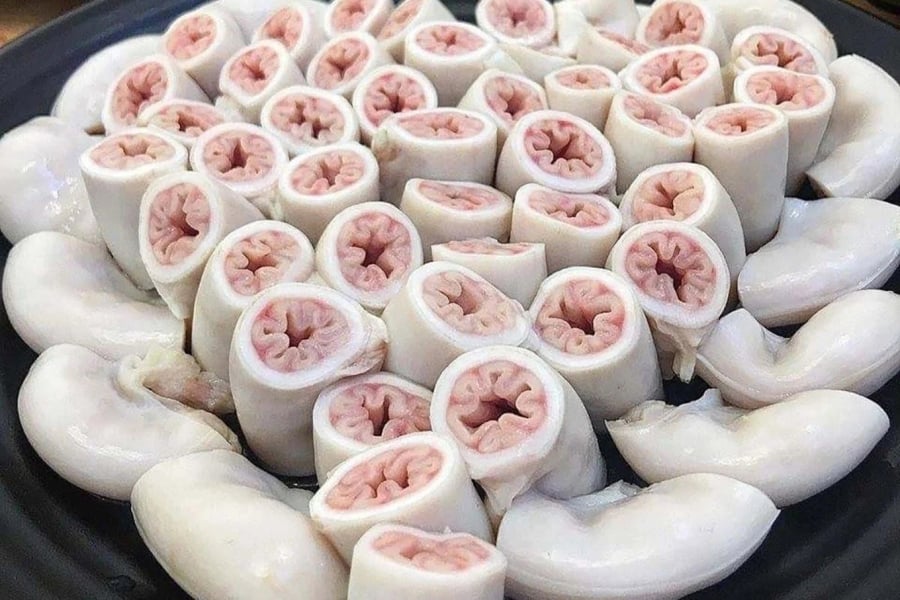Organ meats are high in fat and bad cholesterol
While organ meats such as brain, heart, liver, kidney, stomach, and intestines are rich in nutrients like protein, vitamin A, and iron, they also contain high levels of fat and bad cholesterol, which can lead to metabolic disorders.
According to the National Institute of Nutrition, organs provide iron to prevent anemia in children, pregnant women, and women of childbearing age. These foods also supply vitamin A, which helps improve vision, boost immunity, and promote children’s development.

However, the consumption of organ meats should be done in moderation (2-3 times per week). Adults should limit their intake to about 50-70g per serving, while children should consume only 30-50g.
Additionally, organ meats contain significant amounts of cholesterol. Therefore, older adults and individuals with metabolic disorders such as high cholesterol, atherosclerosis, high blood pressure, diabetes, gout, kidney disease, or obesity should limit their consumption of these foods.
Even though organ meats are a familiar dish in many Vietnamese households, they can pose health risks if not sourced properly and prepared correctly.
Risk of bacterial infection from intestines and stomach
Intestines and stomachs that are not thoroughly cleaned and properly cooked may harbor dangerous bacteria such as E. coli, Salmonella, and Shigella. These bacteria can cause severe digestive issues, including diarrhea, dysentery, and typhoid fever.
Consuming undercooked organ meats or those contaminated with eggs or larvae of parasites can result in infections by roundworms, tapeworms, dog tapeworms, and other parasites. These parasites can cause significant damage to vital organs such as the brain, liver, muscles, and eyes.
Brain tissue, if sourced from cattle infected with BSE (bovine spongiform encephalopathy), can transmit the disease to humans, leading to neurological degeneration and even death.

Animal livers, particularly those from cattle and pigs, if fed with aflatoxin-contaminated feed, can accumulate this toxic substance produced by the Aspergillus flavus fungus. Long-term exposure to aflatoxin has been linked to liver cancer.
Furthermore, Streptococcus suis, a bacterium commonly found in pigs, can be present in the blood, intestines, organs, and even the meat of apparently healthy pigs. Consuming undercooked pork products, such as raw blood pudding or fermented pork sausage, can lead to infection, resulting in meningitis, pneumonia, myocarditis, arthritis, internal bleeding, and even death.
When purchasing organ meats, consumers should opt for fresh products with good elasticity, a smooth surface, and no discoloration or foul odor. Avoid consuming raw or undercooked organ meats, such as raw blood pudding, half-boiled intestines, or fermented pork sausage. It is advisable to buy organ meats from reputable sources, preferably supermarkets or trusted vendors, that have undergone proper inspection.
The Ultimate Liver-Cooling, Kidney-Boosting Beverage: Fortifying Your Body’s Defense Against Cancerous Cells.
Green tea is renowned for its global popularity as a beverage. With an astounding consumption rate, it is estimated that over 3 billion cups of tea are savored daily around the world. Among the myriad of tea varieties, green tea, black tea, oolong tea, and white tea are the most well-known and widely consumed.



































